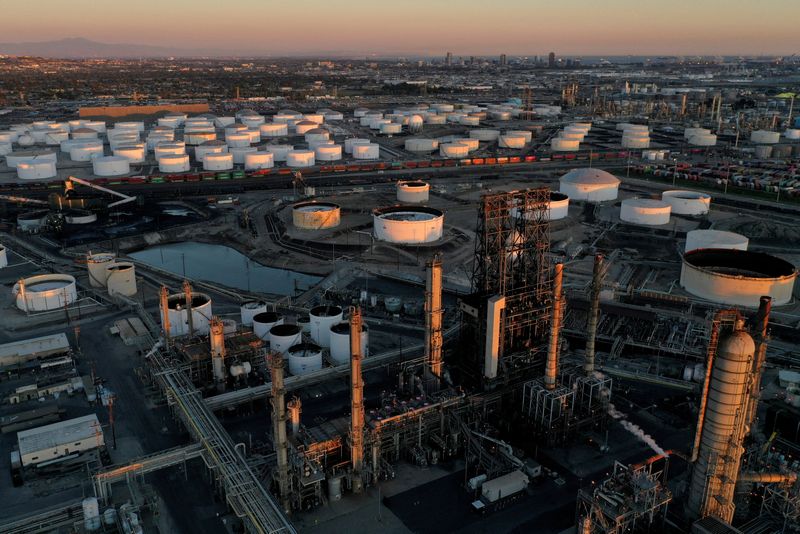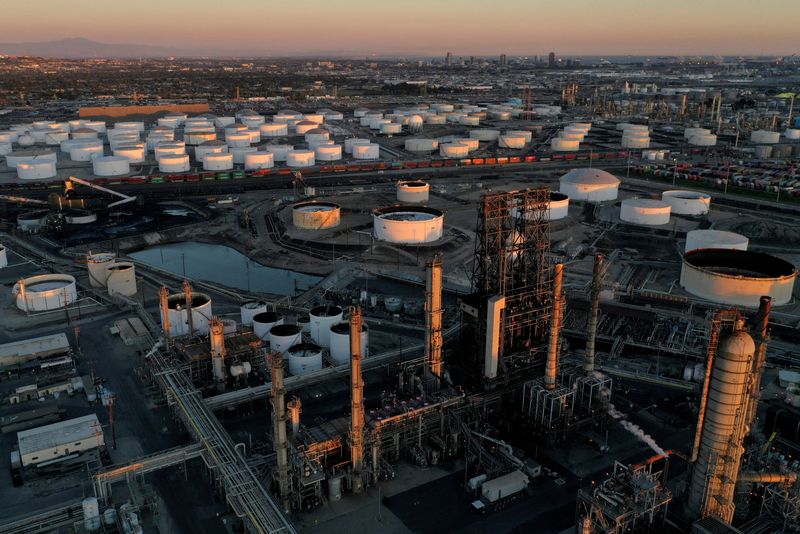
By Ahmad Ghaddar
LONDON (Reuters) -Oil prices steadied on Wednesday as the Organization of the Petroleum Exporting Countries (OPEC) kept its growth forecast for oil demand unchanged for this year and next, while U.S. crude and gasoline inventories likely fell last week.
Brent futures were down 11 cents, or 0.1%, at $84.55 a barrel at 1212 GMT, after falling 1.3% in the previous session.
U.S. West Texas Intermediate (WTI) crude was down 7 cents, or 0.1%, to $81.34 a barrel, after falling 1.1% in the previous session.
OPEC maintained its 2024 and 2025 global oil demand growth forecasts at 2.25 million barrels per day (bpd) and 1.85 million bpd, respectively, it said in a monthly report on Wednesday.
U.S. crude oil fell by 1.923 million barrels and gasoline inventories by 2.954 million barrels, according to market sources, who cited American Petroleum Institute figures on Tuesday. [API/S]
Official data from the U.S. Energy Information Administration will be released at 1430 GMT. [EIA/S]
Both contracts ended the previous three sessions lower on signs that the Texas energy industry came off relatively unscathed from Hurricane Beryl.
Oil and gas companies restarted some operations on Tuesday. Some ports have reopened and most producers were ramping up output, although some facilities sustained damage and awaited full restoration of power.
“The latest bout of selling can be attributed to two major factors: the potential revival of truce talks between Israel and Hamas and Hurricane Beryl,” PVM Oil analyst Tamas Varga said.
In the Middle East, negotiations to secure a ceasefire in the Gaza war will resume in Doha, with the intelligence chiefs of Egypt, the United States and Israel in attendance.

Concerns over demand in China also weighed on prices as consumer prices in the world’s second-largest economy grew for a fifth straight month in June but missed expectations, while producer price deflation persisted.
In its annual Energy Outlook report on Wednesday, BP (NYSE:BP) said it expects oil demand to peak next year and wind and solar capacity to grow rapidly in both of its two main scenarios.
This post is originally published on INVESTING.





